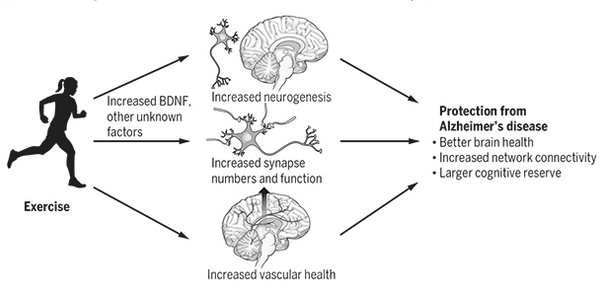A novel medicine, tested in mice, yielded encouraging results, perhaps leading to the creation of a new weight-loss drug that mimics exercise. The novel chemical, discovered and tested by a University of Florida pharmacy professor and his colleagues, causes obese mice to lose weight by fooling the body’s muscles that they are exercising more than they actually are, increasing the animals’ metabolism. It also improves endurance, allowing mice to run nearly 50% further than previously. All without the mice having to raise a finger.
The medication is classified as a “exercise mimetics,” which delivers some of the benefits of exercise without increasing physical activity. The novel medicine is still in the early phases of development, but it could one day be used to treat ailments such as obesity, diabetes, and age-related muscle loss in humans. The study comes at a time when medications like Ozempic have made strides in lowering appetite and thereby aiding in the treatment of metabolic illnesses.
However, the new medicine, known as SLU-PP-332, has no effect on appetite or food consumption. It also does not make mice exercise more. Instead, the medication stimulates a natural metabolic route that responds to exercise. In effect, the medicine causes the body to behave as if it is training for a marathon, resulting in higher energy expenditure and faster fat metabolism.
This compound is basically telling skeletal muscle to make the same changes you see during endurance training. When you treat mice with the drug, you can see that their whole body metabolism turns to using fatty acids, which is very similar to what people use when they are fasting or exercising.
Thomas Burris
“This compound is basically telling skeletal muscle to make the same changes you see during endurance training,” said Thomas Burris, a UF pharmacy professor who led the new drug’s latest research.
“When you treat mice with the drug, you can see that their whole body metabolism turns to using fatty acids, which is very similar to what people use when they are fasting or exercising,” Burris added. “And the animals start losing weight.”
Burris and his colleagues from Washington University in St. Louis and St. Louis University published their findings in the Journal of Pharmacology and Experimental Therapeutics.
The new medicine targets an ERR protein family in the body, which is responsible for activating some of the most critical metabolic pathways in energy-consuming tissues such as muscles, the heart, and the brain. When people exercise, their ERRs become more active, but they have proven challenging to stimulate using medicines.

The researchers revealed in another study published in March that they had successfully engineered SLU-PP-332 to increase ERR activity. They also discovered that the chemical allowed normal-weight animals to run 70% longer and 45% farther than control mice.
The medicine was tested on obese mice in the team’s most recent study. Obese mice fed twice a day for a month gained 10 times less fat than untreated mice and lost 12% of their total weight. Despite this, the mice continued to eat the same amount of food and did not exercise.
“They use more energy just living,” Burris said. Another study that the Burris group is set to publish shows that the chemical can heal heart failure in rats by strengthening the heart muscle.
So yet, no serious negative effects have been reported. The next stage in turning SLU-PP-332 into a medication candidate will be to refine its structure, with the goal of eventually having it available as a tablet rather than an injection. The medicine would then be examined for side effects in other animal models before moving on to human trials.
Other exercise mimics have been attempted, but none have made it to market, in part because developing a new medicine takes years. Because of the complexity of obesity, it has previously been difficult to target it with a medicine. That was until the diabetic medications Ozempic, Wegovy, and Mounjaro led people to lose weight. This breakthrough sparked a rush in interest, research, and financing for medications that could cure these metabolic illnesses via various biological routes.
According to Burris, the new drug’s greatest potential may be in retaining muscle mass during weight loss, which commonly threatens lean muscle mass, or during age, when the body naturally responds less strongly to exercise. But it will take more research to understand the drug’s full potential.





